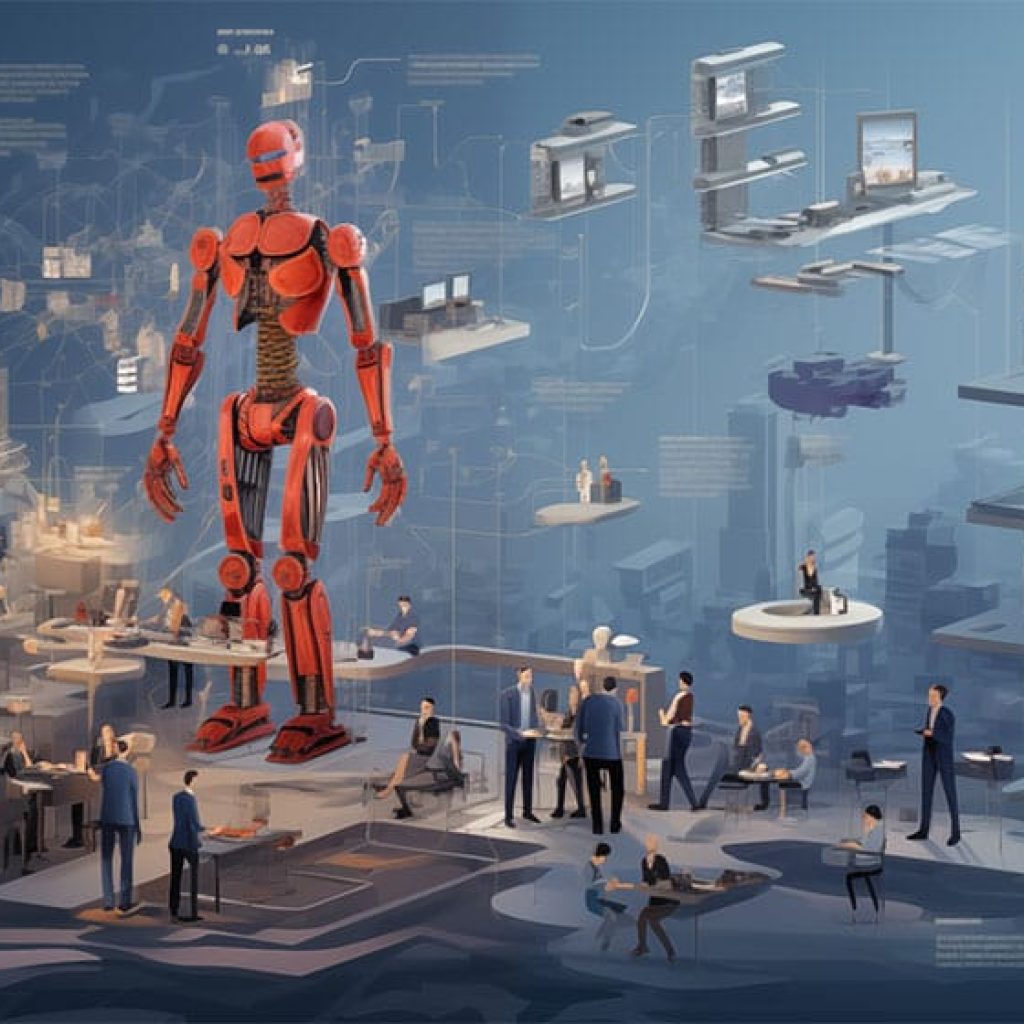Amidst the generative AI hype sweeping through boardrooms and digital forums alike, a surprising skepticism lingers among the Australian workforce. Despite bold claims heralding a new era of transformative technologies, many Australians remain unconvinced about the tangible impact of generative AI on their professional lives.
As businesses grapple with the challenges of digital transformation, a collaborative study by RMIT Online and Deloitte Access Economics has unveiled a concerning trend: a significant gap in understanding and readiness for the adoption of generative AI, raising questions about the nation’s preparedness for the future world of work.
Generative AI hype and it’s relevance in the workplace
The growing demand for digital skills, including proficiency in generative AI, underscores the pressing need for workforce upskilling. Deloitte and the Australian Computer Society (ACS) projects a staggering shortage of 1.3 million digital skills by 2030, highlighting the urgency for businesses and individuals to adapt. However, despite acknowledging the impending integration of generative AI into various job roles, a significant portion of employees confess to never having utilized this technology in their current positions. This discrepancy between awareness and application underscores a fundamental challenge in bridging the gap between technological potential and practical implementation within the workforce.
As businesses grapple with the imperative to embrace digital transformation, the reluctance to invest in generative AI training becomes increasingly apparent. Despite its potential to revolutionize learning and development through personalized content creation, many employers have yet to introduce comprehensive training initiatives. This hesitancy reflects a broader skepticism or unawareness surrounding the benefits and practical applications of generative AI, even as industries brace for profound changes driven by technological innovation.
Generative AI’s impact on skill demand and industry transformation
The economic landscape of Australia stands poised for substantial shifts as generative AI reshapes industries and job roles. With sectors such as financial services, ICT, media, professional services, education, and wholesale trade expected to undergo transformative changes, the demand for digital skills is more pronounced than ever before. While coding has long been hailed as a critical skill, the emergence of no-code generative AI tools is democratizing access to programming capabilities, emphasizing the importance of both technical and soft skills in the modern workforce.
Looking ahead, generative AI is forecasted to create new job roles centered around AI model management and data analytics, necessitating specialized skills and expertise. As businesses race to harness the potential of AI technologies, the challenge lies in closing the gap between skill demand and workforce readiness, ensuring that individuals possess the requisite capabilities to thrive in an increasingly digitized economy.
As Australia navigates the complex terrain of digital transformation, the generative AI hype presents both opportunities and challenges for businesses and the workforce alike. The discrepancy between enthusiasm for learning about AI and actual investment in training initiatives raises critical questions about the nation’s readiness to embrace emerging technologies. In light of these findings, how can Australian businesses and policymakers bridge the gap between generative AI’s potential and its practical implementation, ensuring that the workforce is equipped with the skills needed to succeed in the digital age?





